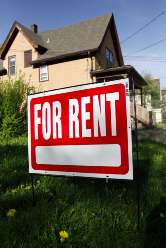
New research from Onthehouse/Residex shows that, in much of Australia, it is now cheaper to rent than it is to pay off a mortgage.
In Sydney, buyers spend 39.39% more each month on loan repayments for a median-valued house than it would cost to rent. Similar Melbourne buyers spend 50.72% more on loan repayments than they would on rent.
Residex founder John Edwards said high numbers of investors taking advantage of low interest rates meant FHBs and younger buyers now find it difficult to afford to purchase property and are choosing to rent instead.
“Investors enjoy rising rents and they will have capital growth that won’t fall. So the overall rate of return and the risk from housing will be good. Also, as rents rise, the risks for investors diminish because there is more recurring cash-flow to pay off debt.”
The current strong rental market means it is a good time for would-be property investors to get their foot on the first rung of the ladder – especially as the situation will be a long-term trend, Edwards added.
According to the new Onthehouse/Residex data, first time purchases hit historic lows in December 2013.
- In NSW, FHBs made up just 7% (which is under 5000) of total dwelling sales.
- In Victoria, 12% (which is about 6000) of total dwelling sales went to FHBs.
- In Queensland, FHBs also made just 12% (again, around 6000) of total dwelling sales.
“Keep in mind that the long-term savings from paying off a mortgage and capital gains on your own property, can outweigh the short-term benefits of affordability.”
Although it is Sydney and Melbourne which are displaying the biggest differences in renting vs buying costs, most other capital cities also display an affordability gap.
The new Onthehouse/Residex data shows there are just two cities where it is more affordable to buy a property than to rent one.
They are Darwin, where paying off a loan on a median value unit costs about $101.08 per month less than renting, and Hobart, where an owner could expect to pay $10 per month less on a loan than in rent.
Edwards said indicators suggest Australia is moving to a situation where many families will be renters unless something happens to diminish housing costs.
“Renting in capital cities looks as though it will be the natural outcome for young working families in these areas. However, as rents are only going to rise significantly, government will be forced to take action to reduce rents, because rent will become unaffordable.”
FHBs will be forced to move out of the capital cities and into regional towns which will lead to these major regional areas seeing significant growth over the longer term.
In fact, good growth in larger regional towns is likely to surpass growth in capital cities, Edwards predicted.
“Particularly if government does what they need to do which is incentivize businesses to set up operations in regional towns, to help take pressure off capital city housing, and to decentralise the population.”
